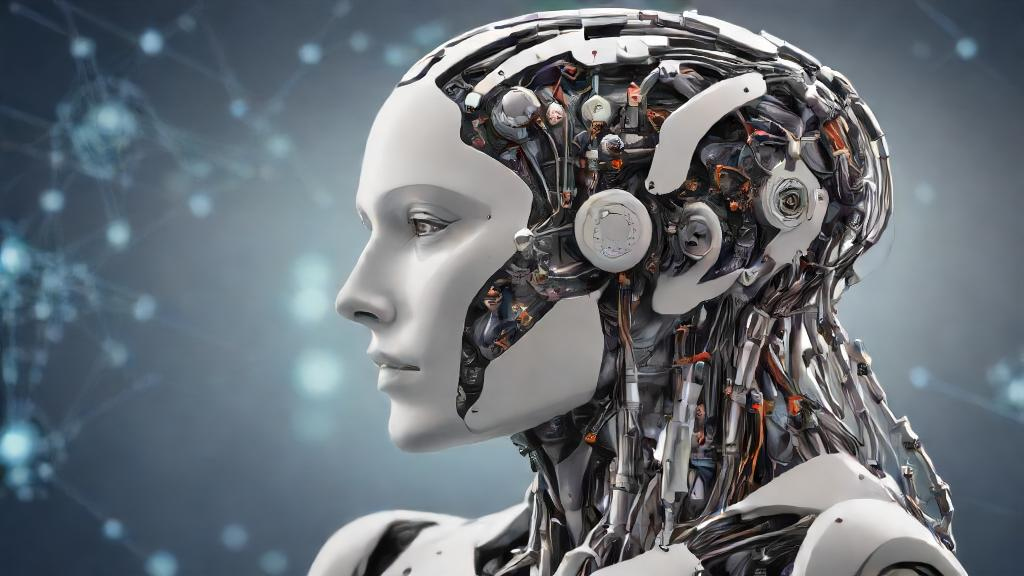The Future of AI in the IT Industry: Transforming Tomorrow’s Technology Landscape
BY: DA PUBLISHED: 2024-10-05 18:04:24 | UPDATED: 2026-02-02 22:28:54 | Views: 1366
Artificial Intelligence (AI) has rapidly evolved from a futuristic concept to a pivotal force reshaping various industries. Among these, the Information Technology (IT) sector stands at the forefront of this transformation. As AI continues to advance, its integration into the IT industry promises unprecedented innovations, enhanced efficiencies, and new challenges. This blog explores the future of AI in the IT industry, highlighting key trends, impacts, and the road ahead.

1. Automation and Efficiency: Redefining IT Operations
AI-driven automation is revolutionizing IT operations by streamlining processes, reducing human error, and increasing operational efficiency.
- IT Service Management (ITSM): AI-powered chatbots and virtual assistants are handling routine support tasks, enabling IT teams to focus on more complex issues.
- Infrastructure Management: Predictive analytics anticipate system failures and automate maintenance tasks, minimizing downtime and optimizing resource allocation.
- DevOps Automation: AI tools facilitate continuous integration and continuous deployment (CI/CD), accelerating software delivery cycles and enhancing collaboration between development and operations teams.
2. Enhanced Cybersecurity: Safeguarding the Digital Frontier
As cyber threats become increasingly sophisticated, AI is indispensable in fortifying IT security frameworks.
- Threat Detection and Response: Machine learning algorithms analyze vast datasets to identify anomalies and potential threats in real-time, enabling swift mitigation.
- Behavioral Analytics: AI assesses user behavior to detect insider threats and compromised accounts, enhancing overall security posture.
- Automated Incident Response: AI-driven systems can autonomously respond to security breaches, containing threats faster than traditional methods.
3. AI-Driven Software Development: Innovating the Creation Process
AI is transforming software development, making it more intelligent, adaptive, and efficient.
- Code Generation and Optimization: AI tools assist developers by generating code snippets, suggesting optimizations, and identifying bugs, thereby accelerating the development process.
- Automated Testing: AI-powered testing frameworks execute comprehensive test scenarios, ensuring higher software quality and reliability.
- Predictive Project Management: AI analyzes project data to forecast potential delays and resource bottlenecks, enabling proactive management and timely delivery.
4. Data Analytics and Business Intelligence: Unlocking Insights
In the age of big data, AI is the key to unlocking actionable insights and driving informed decision-making.
- Advanced Analytics: AI algorithms process and analyze complex datasets, uncovering patterns and trends that inform strategic initiatives.
- Natural Language Processing (NLP): AI-enabled tools interpret and generate human language, facilitating more intuitive data queries and reports.
- Predictive Modeling: AI forecasts future trends based on historical data, empowering businesses to anticipate market shifts and adapt accordingly.
5. Personalized IT Services: Tailoring Solutions to Needs
AI facilitates the delivery of personalized IT services, enhancing user experiences and satisfaction.
- Adaptive User Interfaces: AI customizes interfaces based on user preferences and behaviors, improving usability and engagement.
- Intelligent Resource Allocation: AI dynamically allocates IT resources based on real-time demand, ensuring optimal performance and cost-efficiency.
- Customized Support Solutions: AI-driven support systems provide tailored assistance, addressing specific user needs and issues more effectively.
Impact of AI on the IT Workforce
The integration of AI into the IT industry is reshaping job roles and required skill sets.
- Shift in Job Roles: Routine and repetitive tasks are increasingly automated, allowing IT professionals to focus on strategic, creative, and complex problem-solving activities.
- Demand for AI Skills: There is a growing need for expertise in AI, machine learning, data science, and related fields, prompting educational institutions and organizations to prioritize these areas.
- Continuous Learning: The rapid evolution of AI technologies necessitates ongoing training and professional development to keep pace with industry advancements.
Challenges and Considerations
While the future of AI in IT is promising, it is not without challenges.
1. Ethical Concerns
- Bias and Fairness: Ensuring AI systems are free from biases that could lead to unfair treatment or decision-making.
- Transparency: Making AI algorithms and decision processes understandable and transparent to users and stakeholders.
- Accountability: Establishing clear accountability for AI-driven decisions and actions.
2. Data Privacy
- Data Security: Protecting sensitive data from breaches and unauthorized access as AI systems handle vast amounts of information.
- Regulatory Compliance: Adhering to data protection laws and regulations, such as GDPR and CCPA, to safeguard user privacy.
3. Integration with Existing Systems
- Compatibility: Ensuring AI technologies seamlessly integrate with legacy systems and infrastructure.
- Scalability: Building AI solutions that can scale with organizational growth and evolving technological landscapes.
- Cost: Balancing the investment in AI technologies with the anticipated benefits and return on investment.
Opportunities for IT Companies
AI opens up a plethora of opportunities for IT companies to innovate and gain a competitive edge.
1. Innovation and New Services
- AI-as-a-Service (AIaaS): Offering AI-powered solutions and platforms to clients, enabling them to leverage AI without extensive in-house expertise.
- Customized Solutions: Developing bespoke AI applications tailored to specific industry needs and challenges.
- Emerging Technologies: Exploring the integration of AI with other emerging technologies like blockchain, Internet of Things (IoT), and augmented reality (AR) to create groundbreaking solutions.
2. Competitive Advantage
- Enhanced Capabilities: Leveraging AI to provide superior products and services, differentiating from competitors.
- Operational Excellence: Utilizing AI to optimize internal processes, reduce costs, and improve overall efficiency.
- Customer Engagement: Employing AI to deliver personalized and responsive customer experiences, fostering loyalty and satisfaction.
Future Outlook
The trajectory of AI in the IT industry points towards deeper integration and more sophisticated applications. Key areas to watch include:
- Edge AI: Bringing AI processing closer to data sources for faster decision-making and reduced latency.
- Explainable AI (XAI): Developing AI systems that can explain their reasoning, enhancing trust and usability.
- AI Governance: Establishing frameworks and standards to guide the ethical and responsible use of AI technologies.
- Quantum Computing: Exploring the synergy between AI and quantum computing to solve complex problems beyond current capabilities.
The future of AI in the IT industry is both exciting and transformative. As AI continues to evolve, it will drive innovation, enhance efficiencies, and open new avenues for growth and development. However, navigating the associated challenges will require thoughtful strategies, ethical considerations, and a commitment to continuous learning. Embracing AI’s potential while addressing its complexities will be crucial for IT companies aiming to thrive in the dynamic technological landscape of tomorrow.
You May Also Like

5G: What It Means for You
1 year agoLatest Videos
Top 5 AMAZING Places to Visit in Ethiopi...
Oct 18, 2025Sea waves & beach drone video
Jun 21, 2025Related Articles

5G: What It Means for You
1 year ago
How Artificial Intelligence is Changing...
1 year ago
